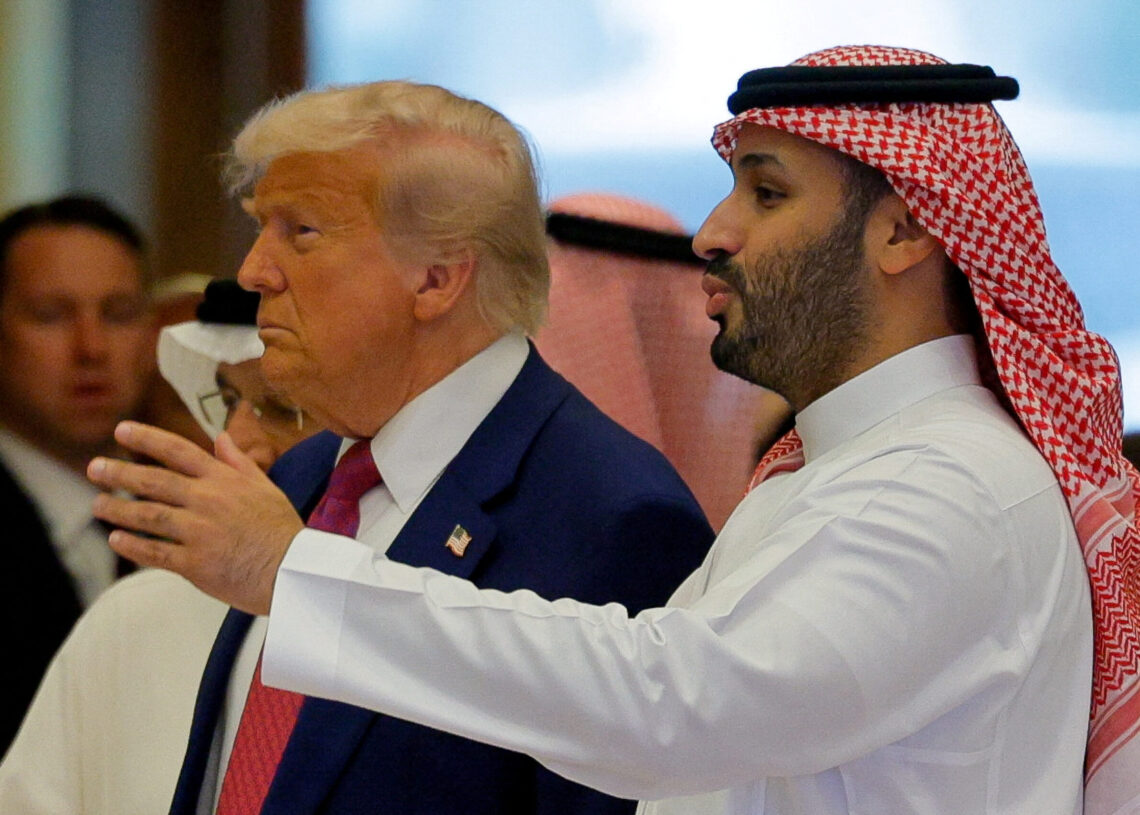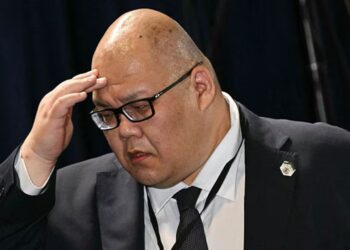Ali Shihabi is a Saudi author and commentator and member of the advisory board of the new Saudi region of Neom planned by Crown Prince Mohammed bin Salman.
When Mohammed bin Salman, Saudi Arabia’s crown prince and prime minister, arrives at the White House on Tuesday, it will mark a pivotal moment in a vital international relationship.
Both nations are reassessing their global roles: The United States is redefining its alliances in a more fragmented world, while Saudi Arabia is asserting itself as a middle power determined to advance a vision of order, stability and economic prosperity in a turbulent region.
For nearly eight decades, the U.S.-Saudi partnership has been central to Middle Eastern stability and global energy security. What began as a simple “security for oil” arrangement has evolved into a broader partnership built around counterterrorism, energy-market stability, and an effort to marginalize extremism and stabilize the Arab world, with U.S. participation essential in such places as Gaza, the West Bank, Lebanon, Syria, Sudan and Yemen.
Critics of the kingdom’s problematic history on human rights often cast the relationship in moral terms. Yet geopolitics is not a moral science; it is the management of national interests, a reality Washington and Riyadh have long understood.
Under MBS, as the crown prince is usually known, Saudi Arabia is undergoing an internal transformation at impressive speed. A society once constrained by ultra-religious conservatism has been decisively modernized. Women now drive, work virtually everywhere and even serve in the military; entertainment and tourism are are being heavily promoted, and the economy is steadily diversifying away from oil.
The hardest piece of modernization is always legal reform. Some criminal sentences such as the death penalty for narcotics trafficking and the arrests of some activists still understandably strike international observers as draconian. But there is progress. While in the past much of the law was left to judicial whim, the government has instituted codified statutes, standardized procedures and digitized case management. But overhauling an entire legal architecture takes time: It will involve retraining judges across the country, unifying legal precedent and reconciling sharia jurisprudence with new modern codes.
Taken together, these shifts have implications that reach far beyond the kingdom. From Washington’s point of view, a strong, reforming Saudi Arabia, birthplace of Islam and home to its holiest sites, could moderate Muslim communities worldwide, erode the appeal of radicalism and provide the United States with a stable, dependable partner in a region defined by volatility. Accordingly, MBS’s visit can be expected to deliver several tangible results that will shape the next phase of U.S.-Saudi cooperation.
After two years of talks carried over from the Biden administration, both sides are nearing a formal defense cooperation agreement. Saudi Arabia’s recent defense pact with nuclear-armed Pakistan underlines that Riyadh has alliance options in a world where China and Russia are expanding their influence, so it is in Washington’s clear interest to keep Saudi Arabia firmly anchored in the Western camp.
Meanwhile, major announcements are expected in artificial intelligence, mining, rare earths and civilian nuclear energy. The Saudi Public Investment Fund has become one of the world’s most active sovereign investors, building deep partnerships with U.S. industry and finance. Saudi Arabia wants to evolve from being purely an oil exporter into also a green energy exporter and technology powerhouse, and it continues to see the United States as its partner of choice.
Another factor tying the countries together is monetary. Riyadh’s longstanding support for pricing oil in dollars greatly helps anchor the greenback’s global reserve-currency status. That link is one of the quiet foundations of the American-led financial order.
Of course, any durable regional order must address the Palestinian question. MBS has been clear: Normalization with Israel can succeed only if tied to real progress toward a Palestinian state. The Gaza truce, imposed through Trump’s bold and welcome intervention, must hold, and the next phase must lead to Israel’s full withdrawal from Gaza. Riyadh’s goal is to secure a peace that is credible, not cosmetic. Saudi Arabia sees Israel as a potential partner in building a prosperous region, but the unresolved Palestinian issue remains the easiest pretext for spoilers to ignite instability. That must end.
Still, even close partners have friction points. Washington may push Riyadh to move faster on normalization with Israel than the kingdom is ready to go. Saudi Arabia will press for access to advanced U.S. weapons systems that Washington has so far hesitated to approve. And oil will always test the relationship: Trump wants prices low for American consumers, while Saudi Arabia prefers prices high enough to support its fiscal balance and plans to diversify away from oil.
What matters now is that the United States needs reliable partners, and Saudi Arabia needs allies who recognize its transformation and its central role in the Arab and Islamic worlds.
Although MBS comes to Washington as head of government rather than head of state, Trump will receive him with the full ceremony of a state visit. This isn’t about nostalgia for the old oil-for-security bargain. It’s about building a modern partnership grounded in shared interests: regional stability, defense integration and economic interdependence. When Washington and Riyadh act in concert, the region steadies; when they drift apart, chaos fills the vacuum.
The post As Trump and MBS meet, a longtime partnership faces new realities
appeared first on Washington Post.




